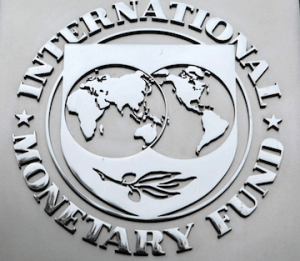Did IMF postpone third review mission to Ghana on security fears?
 The International Monetary Fund (IMF) is due in Ghana next week to review its programme with the country.
The International Monetary Fund (IMF) is due in Ghana next week to review its programme with the country.
But some news reports in the past week had said officials of the Fund should have arrived in Ghana in the previous weeks but had to postpone the visit due to security fears.
But when ghanabusinessnews.com contacted the Fund for clarification on the decision to postpone the visit, a spokesperson for the Fund sent the following response.
“The IMF team is planning to travel to Accra in the coming days for discussions on the third review.”
A source with the Fund who asked not to be named said, “Not sure where the postponement news is coming from and why. The staff report on the website indicates the schedules of the reviews and the plan was always to do this after the Spring Meetings.” The Spring Meetings were held from April 15 to 17, 2016.
Meanwhile, a source familiar with preparations for the Review Mission at Ghana’s Ministry of Finance told ghanabusinessnews.com that the Fund postponed the earlier mission due to what was described as ‘security concerns’.
The Executive Board of the International Monetary Fund completed its second review of the Extended Credit Facility (ECF) arrangement for Ghana and approved $114.6 million for the country after finding performance to be broadly satisfactory.
The $114.6 million brings total disbursements to about $343.7 million.
Mr Min Zhu, IMF Deputy Managing Director, said Ghana’s implementation performance of the $918 million programme, continues to be “broadly satisfactory but the economic outlook remains difficult with risks tilted to the downside.”
The IMF said while it is encouraging that Ghana’s fiscal consolidation efforts are on track and electricity production capacity is gradually being increased, “a wide range of ambitious reforms” would be needed to sustain gains from fiscal consolidation over the medium term including broadening of the tax base and enhancing tax compliance, and enhancing management of the wage bill and public finances.
By Emmanuel K. Dogbevi
